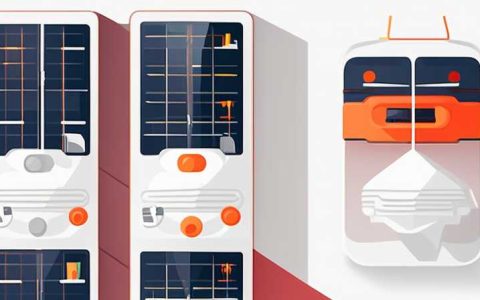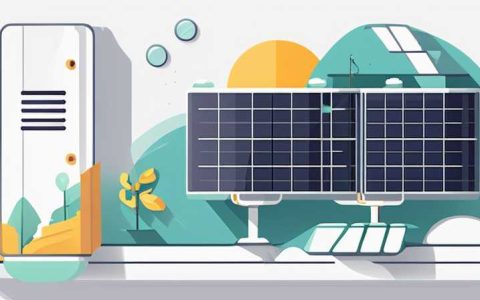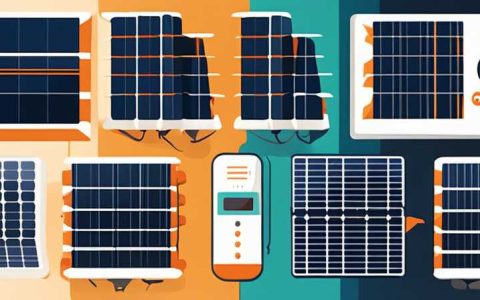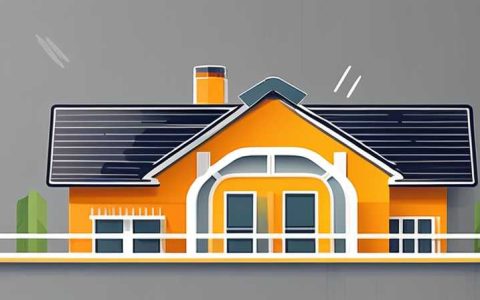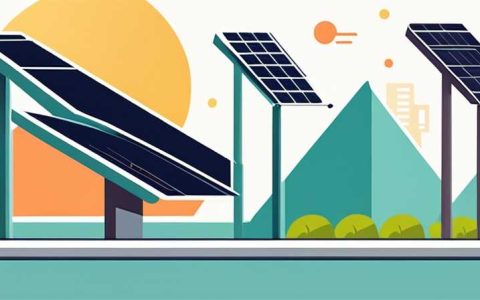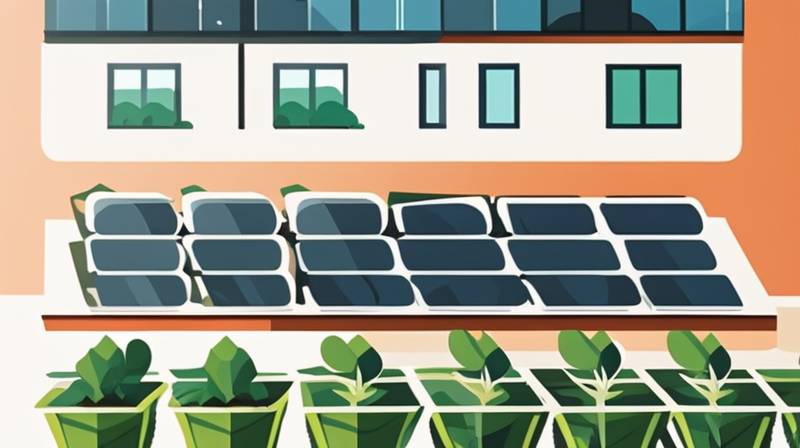
Solar Power for Urban Agriculture: Rooftop Gardens and Vertical Farms
Solar power plays a pivotal role in enhancing urban agriculture through 1. Sustainable energy utilization, 2. Increased food production, 3. Environmental conservation, 4. Economic benefits. The integration of solar energy in rooftop gardens and vertical farms not only alleviates energy costs but also fosters higher productivity. For instance, leveraging solar panels for energy can significantly reduce operational expenses in food cultivation while promoting eco-friendly practices. The utilization of renewable resources addresses energy demands and contributes to food security in urban areas, thereby proving essential for the future of urban living.
1. INTRODUCTION TO SOLAR POWER IN URBAN AGRICULTURE
The relevance of solar energy in urban farming cannot be overstated. Urban areas face unique challenges, including limited arable land and high energy costs, making sustainable agricultural practices increasingly vital. The advent of innovative techniques such as rooftop gardens and vertical farms offers optimal solutions to these hurdles, allowing for food production in confined spaces while minimizing environmental impact.
Incorporating solar power into urban agriculture not only optimizes energy efficiency but also promotes agricultural diversity. Rooftop gardens benefit significantly from using solar panels, which can provide the necessary energy to operate irrigation systems, climate controls, and other essential equipment without straining the city’s energy grid. Furthermore, vertical farms, often constructed in repurposed buildings, can harness solar energy to create controlled environments that nurture plant growth year-round, ensuring a steady food supply despite external climate fluctuations.
2. THE ADVANTAGES OF ROOFTOP GARDENS
Rooftop gardens are emerging as a transformative component of urban agriculture, and the benefits of integrating solar energy into these systems are manifold. First and foremost, they utilize underused spaces to create green areas that breathe life into concrete jungles. These gardens serve not only to produce food but also to enhance residents’ well-being by improving air quality and providing recreational spaces.
From a practical standpoint, rooftop gardens equipped with solar panels drastically reduce energy costs associated with maintenance and operations. Managing irrigation or climate control systems powered by solar energy slashes electricity bills while fostering sustainability. In addition, these gardens play a crucial role in mitigating the urban heat island effect, resulting in cooler cities where the demand for air conditioning diminishes, thus lowering overall energy consumption during the warmer months.
3. VERTICAL FARMS AS A SOLUTION FOR URBAN FOOD PRODUCTION
Vertical farms represent a paradigm shift in how food can be produced in densely populated areas. They utilize stacked layers of crops grown in controlled indoor environments, which can be powered optimally by solar energy. The feasibility of vertical farming hinges on advanced technologies such as hydroponics and aeroponics, which enable food production without soil, reducing the land needed for cultivation significantly.
When integrated with solar panels, vertical farms can generate their own energy, which allows for optimal conditions for plant growth throughout the year while minimizing reliance on fossil fuels. The use of artificial lighting, temperature control, and irrigation systems can all be powered through solar energy, making these operations self-sustaining. This model is particularly advantageous in urban settings, as it circumvents the significant logistical challenges associated with transporting food over long distances.
4. ECONOMIC BENEFITS OF SOLAR-POWERED URBAN AGRICULTURE
The economic implications of adopting solar energy within urban agriculture are extensive. Rooftop gardens and vertical farms contribute not only to food production but also to local economies by creating job opportunities in farming, energy management, and sustainability sectors. Investing in solar-powered agricultural systems can yield substantial returns over time, as businesses shift to more sustainable practices, which can appeal to a growing market of environmentally conscious consumers.
Moreover, urban farming initiatives often receive governmental support in the form of subsidies and tax incentives aimed at promoting renewable energy sources. This support can significantly reduce initial installation costs for solar power systems, making it more feasible for urban farmers to harness this technology. The convergence of agricultural innovation with solar energy is paving the way for resilient urban food systems that create a more sustainable economic landscape.
5. ENVIRONMENTAL IMPACTS AND SUSTAINABILITY
Integrating solar energy with urban agriculture has profound implications for environmental sustainability. The reduction of carbon emissions is paramount when analyzing the benefits of employing solar panels in farming operations. Urban agriculture powered by solar energy enables a significant decrease in greenhouse gas emissions, supporting global climate goals.
Additionally, solar-powered urban gardens can enhance biodiversity within cities by creating habitats for various species, including pollinators like bees. This is particularly vital, as urban areas often struggle with maintaining ecological balance due to limited green spaces. Increasing green zones through rooftop gardens and vertical farms fosters a healthier urban ecosystem, which in turn supports human health and well-being.
6. CHALLENGES IN IMPLEMENTING SOLAR POWERED URBAN AGRICULTURE
Despite the numerous advantages, there are notable obstacles to widespread adoption of solar energy in urban farming. Financial barriers present a significant challenge, as initial investments in solar infrastructure can be high. Many small-scale farmers may struggle to afford the installation costs associated with solar panels, which could prevent them from realizing the long-term savings and benefits.
Additionally, regulatory constraints can hinder the integration of solar energy in urban agricultural settings. Zoning laws and building codes may not always accommodate the installation of solar systems or urban farming practices. Creative partnerships between local governments, private sectors, and farmers are essential to navigate these challenges while fostering a conducive environment for solar-powered urban agriculture initiatives.
7. FUTURE TRENDS IN SOLAR ENERGY AND URBAN AGRICULTURE
Looking ahead, the intersection of solar energy and urban agriculture is poised for significant growth. Innovations in solar technology, such as bifacial solar panels and building-integrated photovoltaics (BIPV), will enhance the efficiency and aesthetics of urban agricultural facilities. These advancements will foster greater integration of solar energy systems within urban landscapes, making them more accessible and appealing to farmers.
Moreover, as the urban population continues to rise, the demand for localized food sources will push for more innovative solutions that pair agriculture with renewable energy. The concept of agrovoltaics, where agricultural practices and solar energy generation coexist on the same land, will reshape how urban areas can leverage their spaces for dual purposes. The future highlights a commitment to sustainable practices, aiming to create self-sufficient urban food systems that do not compromise the environment or the health of city dwellers.
FREQUENTLY ASKED QUESTIONS
WHAT ARE ROOFTOP GARDENS?
Rooftop gardens are urban agricultural spaces created on the rooftops of buildings, utilizing an otherwise underused area for food production and biodiversity enhancement. These gardens can vary in design and scale, with some focusing solely on ornamental plants, while others actively cultivate vegetables, herbs, and fruits. One of the fundamental aspects of rooftop gardens is their ability to contribute positively to urban ecosystems, promoting green space in densely populated areas.
The integration of solar energy into these gardens enables sustainable operation through irrigation and climate control systems powered by solar panels. This energy self-sufficiency fosters resilient practices in urban agriculture, ensuring that operational costs remain low, all while providing a source of fresh produce to local communities. Rooftop gardens embody not merely a method of food production but also act as vital green infrastructure, improving air quality and reducing heat in urban environments.
WHAT ARE THE ADVANTAGES OF VERTICAL FARMING?
Vertical farming offers several benefits that are particularly advantageous in urban contexts. By utilizing vertically stacked layers of crops, vertical farms optimize space usage, allowing food production in areas where traditional farming is impractical. This method significantly conserves water through advanced systems such as hydroponics and aeroponics, enabling crops to thrive with minimal resource use.
The environmental benefits are compounded when vertical farms implement solar energy systems, as they can operate autonomously without relying on conventional energy sources. This results in lower energy bills and a smaller carbon footprint. Furthermore, vertical farms can supply fresh, local produce year-round, reducing the need for transportation that typically accompanies traditional agriculture, thus contributing positively to food security in urban areas. The innovative integration of technology and sustainability inherent in vertical farming encapsulates a future-facing approach to urban food production.
HOW DOES SOLAR POWER BENEFIT URBAN AGRICULTURE?
The utilization of solar power in urban agriculture underscores a strategic advantage in achieving sustainable farming practices. By harnessing solar energy, urban farms can drastically reduce their reliance on conventional energy sources, leading to significant cost savings over time. The energy generated through solar panels can be directed towards powering essential functions, such as lighting, irrigation systems, and climate control, which are critical for optimizing crop growth in urban settings.
Moreover, solar-powered urban agriculture has implications beyond mere economic efficiency; it directly contributes to environmental conservation by decreasing the carbon footprint associated with farming operations. As cities continue to expand, the integration of solar energy into agriculture helps mitigate urban sprawl’s negative impacts by promoting localized food production. This approach, thus, not only supports urban ecosystems but also aligns with broader efforts to foster sustainable living within city environments.
The integration of solar energy within urban agriculture schemes like rooftop gardens and vertical farms illuminates a sustainable path to meet the food demands of urban populations while diminishing environmental footprints. By harnessing renewable resources, these agricultural practices can achieve economic viability without compromising ecological principles, aligning food production with climate goals through comprehensive planning. Cities are positioned not only to become more self-sufficient but also to invigorate local economies, enhance community resilience, and promote healthier living environments for residents. The potential for solar power in urban agriculture represents both a necessary adaptation to contemporary challenges, such as climate change, and an innovative opportunity for cities to lead the way toward a more sustainable future. The convergence of these initiatives offers a glimpse into a world where urban agriculture is perpetually renewable, innovative, and vital, shaping the landscapes of modern living. This exciting synergy between technology, energy use, and production techniques will undoubtedly define future cities, making them showcases of sustainability that thrive, nourish, and inspire collectively.
Original article by NenPower, If reposted, please credit the source: https://nenpower.com/blog/solar-power-for-urban-agriculture-rooftop-gardens-and-vertical-farms/



